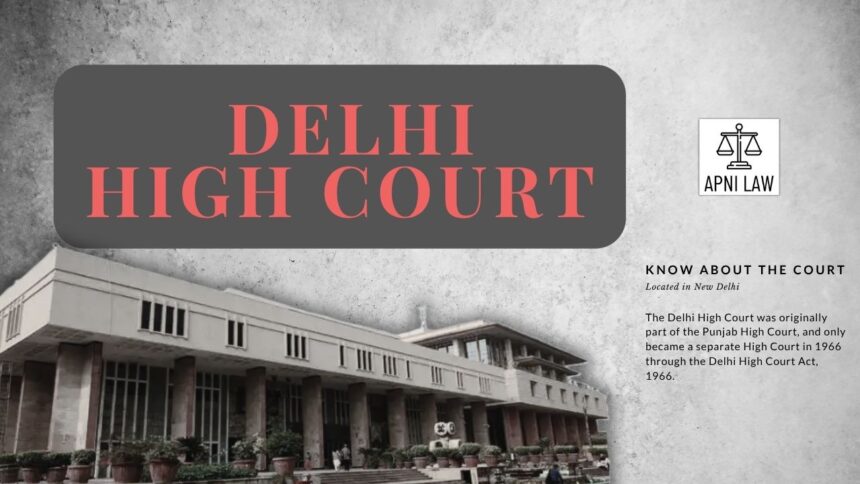Introduction
The Delhi High Court, in Rajnish v. State NCT of Delhi, held that a minor’s failure to describe sexual acts as forceful in her first statements cannot absolve an accused under the POCSO Act.
What were the facts of the case?
In this case, a 21-year-old man faced charges under Sections 363, 366, and 376(2)(n) of the Indian Penal Code and Section 5(l) of the POCSO Act. The trial court found him guilty and sentenced him to 10 years of rigorous imprisonment. The court also ordered payment of ₹7 lakh as compensation to the victim.
The convict challenged his conviction, contending that the victim, in her initial statement to the police, did not describe the sexual acts as forced. She had told the police that she left her home voluntarily, that she loved the accused, and that they had married. A few days later, before the Magistrate, she changed her version and claimed that the accused had forcibly taken her away and had physical relations with her against her will. The defence argued that these inconsistencies should weaken the prosecution’s case and benefit the accused.
What did the court say?
Justice Sanjeev Narula dismissed the appeal. He ruled that even if the victim initially failed to label the acts as forceful, or even described them as consensual, that fact does not exculpate the accused under POCSO. He observed that the law recognizes the possibility of influence or manipulation over minors, especially given the disparity in age and maturity.
The court emphasized that in prosecutions under the POCSO Act, the notion of “consent” carries no weight when the victim is a minor. The judge noted that alleged inconsistencies or changes in the victim’s statements do not automatically support a defence.
The court examined the victim’s testimony and found a coherent core across her statements. The medical record confirmed pregnancy during the relevant period. Together, the consistent narrative and corroborative medical evidence convinced the court beyond reasonable doubt that the accused had repeatedly committed penetrative sexual assaults. These facts fell squarely under Section 5(j)(ii) (pregnancy from penetrative sexual assault) and Section 5(l) (repeated penetrative sexual assault) of POCSO. That conduct is punishable under Section 6 of POCSO.
The court affirmed the trial court’s conviction and sentence. It also directed that the Delhi State Legal Services Authority (DSLSA) help facilitate disbursal of the ₹7 lakh compensation to the victim.
What are the implications?
This judgment reinforces that a minor’s early omission to describe acts as forced cannot shield an accused under POCSO. The decision highlights that courts must treat “consent” as immaterial in cases involving minors. The ruling affirms that variations in the victim’s narrative do not automatically aid the defence, especially when a consistent core of testimony and medical corroboration exists.
The decision emphasizes the protective purpose of POCSO, recognizing the vulnerability of minors to influence. It also signals to lower courts and defense counsel that factual inconsistencies must be viewed in context, and that the prosecution’s burden is met when credible, corroborated evidence emerges.
For any specific query call at +91 – 8569843472
Conclusion
In Rajnish v. State NCT of Delhi, the High Court clarified that a minor’s failure in early statements to flag sexual acts as forceful cannot exculpate the accused under POCSO. The judgement underscores that consent is legally irrelevant in sexual offences against minors. It affirms that consistent testimony plus medical evidence can sustain conviction despite minor discrepancies.








